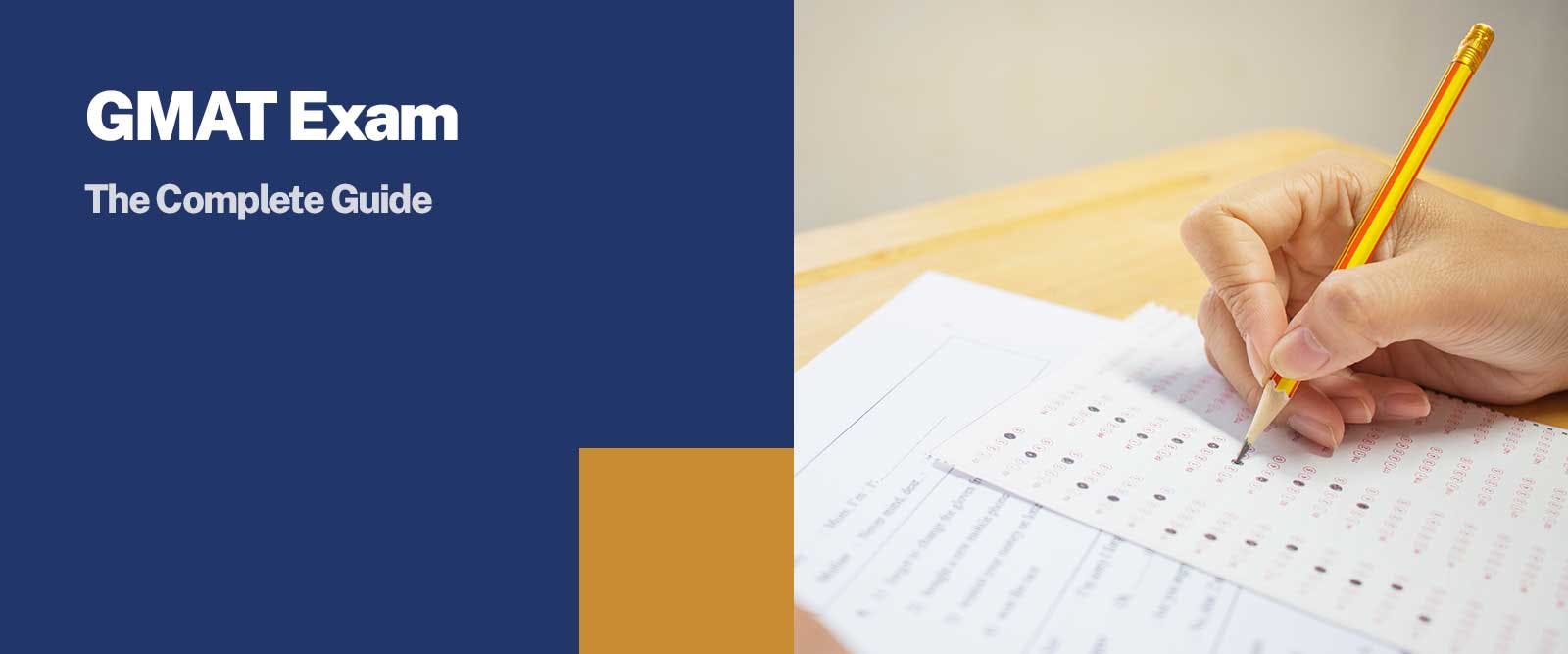5800 students unlocked their dream jobs with UG/PG programs in top colleges. Apply Now!
Are you aspiring to pursue an advanced degree in business administration? If so, you've likely come across different entrance exams like CAT, MAT, XAT, SNAP, and GMAT exam. Most candidates are confused between CAT vs GMAT but if you want to process your application for prestigious business schools worldwide, you need to give GMAT exam.
Unlocking the doors to higher education and countless career opportunities, the MBA degree is a road to success in the world of business and management. For ambitious individuals seeking to make their mark on their professional journey, the first step often involves clearing the entrance exam.
In this blog, we'll answer the biggest question i.e. “What is GMAT Exam?” and explore everything you need to know about the GMAT test which will help you build a promising future in the world of business.
What is GMAT Exam?
The GMAT exam is a standardised exam used as a requirement for admission into many graduate business programs, particularly MBA programs.
It assesses a student’s analytical, writing, quantitative, verbal, and reasoning skills, which are considered crucial for success in business and management studies.
Many business schools worldwide use GMAT scores as part of their admissions process. However, it's worth noting that some schools may accept alternative exams, such as the GRE (Graduate Record Examination), as a substitute for the GMAT. It's important to research the specific requirements of the programs you are interested in to determine which exam is preferred.
GMAT Exam Highlights
|
Exam Name |
GMAT |
|
GMAT full form |
Graduate Management Admission Test |
|
Eligibility for GMAT Exam |
The applicant must be 18 years old. |
|
Official Website |
|
|
Most popular for |
MBA courses outside and in India |
|
Also accepted for |
|
|
Conducted by |
GMAC (Graduate Management Admission Council) |
|
Mode of Exam |
Computer-based adaptive test |
|
GMAT Exam Duration |
3 hours 7 Minutes |
|
GMAT fees in India for 2023 |
|
|
GMAT Contact |
Phone: +91 120-439-7830, 9 a.m. to 6 p.m. Indian Standard Time |
GMAT Exam Registration
Students are eligible to take the exam whenever is most convenient for them throughout the year. It's essential to keep in mind that applicants can only schedule their next attempt after 16 days have passed since their first attempt. A candidate is only permitted five tries per calendar year. Before you know about the MBA colleges accepting GMAT exam, you need to understand the registration process for the GMAT entrance exam.
- Visit the official website, mba.com
- The candidate is required to create an account.
- Fill out your personal information including name, address, etc
- Fill out your academics and work history.
- Verify and submit
- Schedule your examination. After selecting the test day, like the GMAT test centre that is most convenient for you.
GMAT Exam Pattern
|
GMAT Section |
GMAT Question Type & Number of Questions |
|
GMAT Quantitative Reasoning |
Total: 31 |
|
GMAT Verbal Reasoning |
Total: 36 |
|
GMAT Analytical Writing Section |
1 Essay |
|
GMAT Integrated Reasoning |
Total: 12 |
GMAT Exam 2023 Dates
Since the GMAT is offered all over India, there are several test centres from which to choose. In 33 Indian cities at various GMAT exam centres, the GMAT is offered. The availability of test dates depends on the specific test centre and location. To get the most up-to-date information on GMAT exam scheduling and availability, visit the official GMAT website or contact the organisation responsible for administering the GMAT, which is the Graduate Management Admission Council (GMAC). They can provide the latest information on test dates and test centre availability.
GMAT Exam Syllabus
The duration of the GMAT exam is 3 hours and 7 minutes and has a maximum score of 800 points. The GMAT evaluates a candidate's skills across a range of aspects. The GMAT syllabus contains four components in total:
- Analytical Writing Assessment—it checks the student’s ability to think critically and communicate their ideas
- Integrated Reasoning—it checks the ability to analyse data and evaluate information presented in multiple formats
- Quantitative Reasoning—it checks the ability of students to analyse data and draw conclusions using reasoning skills
- Verbal Reasoning—it checks the ability of the students to read and understand written material, evaluate arguments, and correct written material to conform to standard written English
GMAT Exam Preparation Tips
Preparing for the GMAT exam requires a strategic and disciplined approach. Here are some tips to help you effectively prepare for the GMAT:
- Understand the format, sections, and question types of the GMAT. This will help you develop a study plan and allocate appropriate time to each section.
- Develop a study plan that suits your schedule and allows for consistent and dedicated preparation.
- Practice is crucial for success on the GMAT. Solve a variety of practice questions and take timed practice tests to simulate the exam environment.
- Identify patterns and areas of weakness to prioritise in your study plan. Understand the reasoning behind correct answers and learn from your errors.
- Time management is essential during the GMAT. Develop strategies to allocate your time effectively within each section.
Conclusion
As we conclude this comprehensive guide to the GMAT exam, we hope that it has provided you with valuable insights to guide you in your business education journey. Remember, the GMAT is not just a test; it's an opportunity to showcase your aptitude, critical thinking skills, and potential to excel in a rigorous MBA environment.
If you are an aspiring student who wants to pursue a career in business then opting for an MBA degree from Sunstone will be the best choice you could make. Sunstone will help you to build your skills with diverse career options. We work to create your professional portfolio that will increase the chances of your placement with our 100% placement support.
HELP
Take the first step towards your dream job.
ABOUT THE AUTHOR

